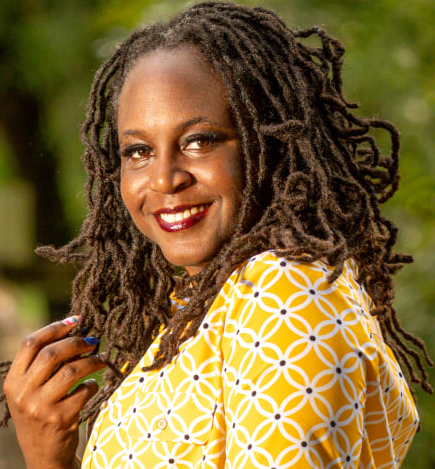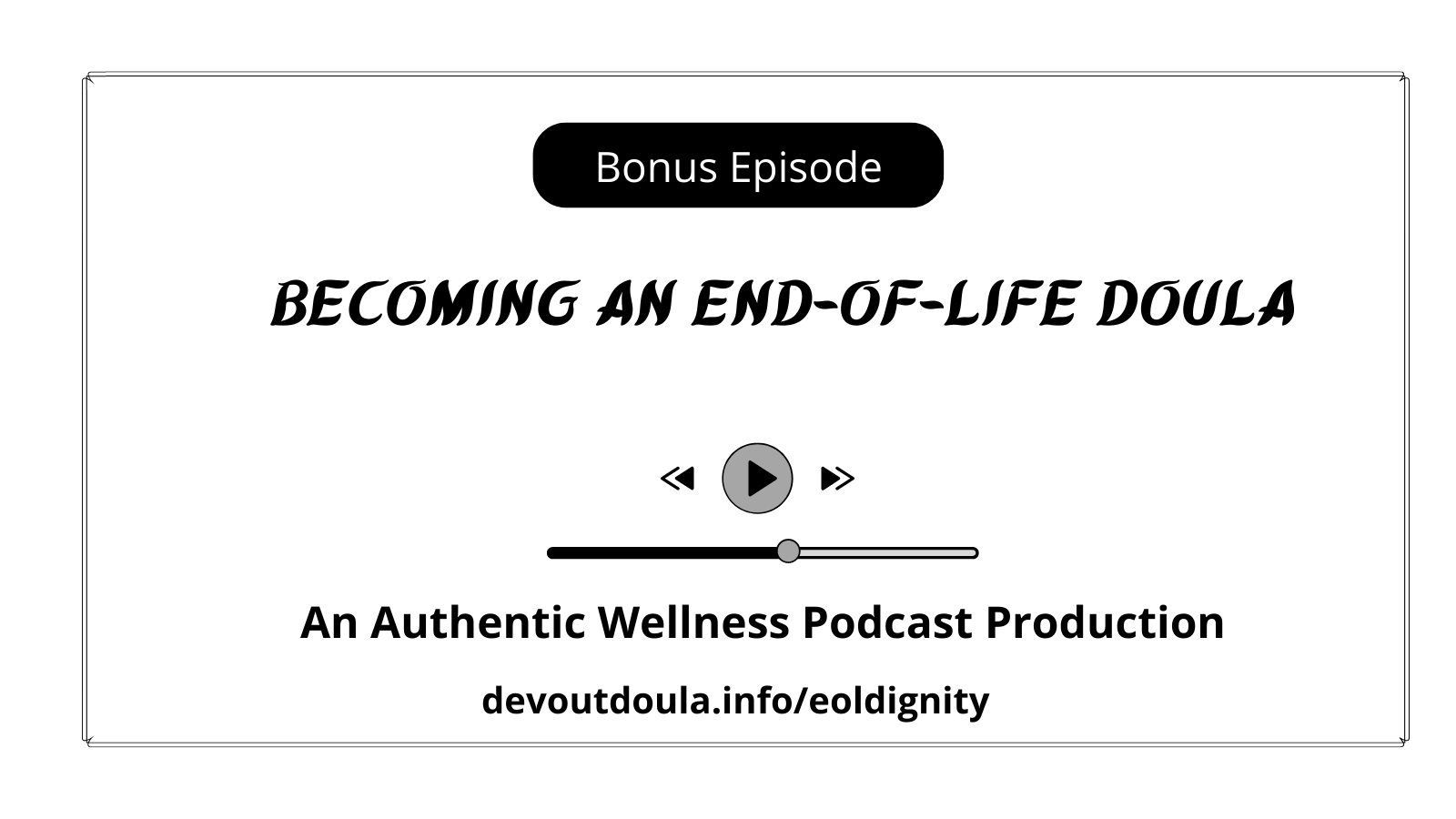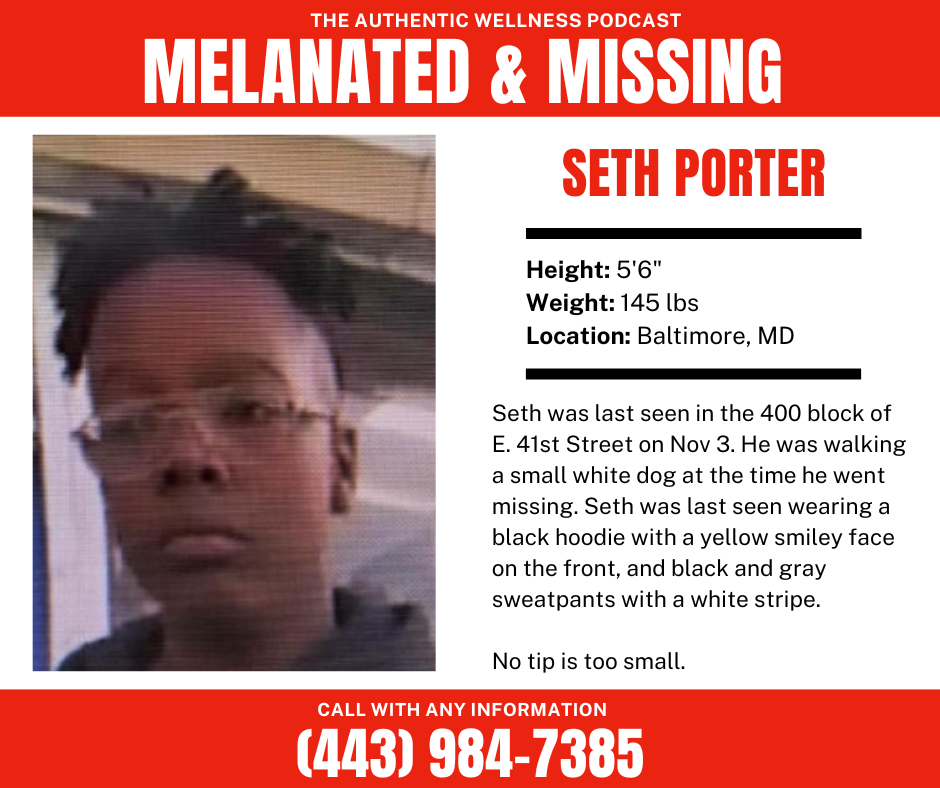Becoming an End-of-Life Doula
What is an end-of-life doula? A person who works with clients who have received a terminal diagnosis. A doula working in this capacity spends time with the dying person for a number of reasons. It could be to help them write about their life, keep them company, support the family members as they begin to grieve or help prepare the atmosphere for their departure.
Who can become an end-of-life doula? Anyone with an interest in helping others pass peacefully can become a doula. While no formal training is necessary, there are courses and certifications available to teach and explain situations you may not encounter often.
When should you reach out to an end-of-life doula for service? Just like with birth, it’s never too early to reach out for services. As soon as you have been informed of your diagnosis, you can start interviewing doulas to see how you mesh.
Where can you perform doula services? You can perform services wherever your clients are or the location where they plan to spend their final moments. Some clients choose their homes, a hospice facility, a hospital room, or in nature.
Why become an end-of-life doula? As morbid as talking about death may seem, it is necessary. In particular, I became a doula because I want to help people die with dignity. I want to support clients as they plan their vigils, capture their legacy using audio or video, and help them work through any unfinished business. Since I am also a birth doula, it is not lost on me that some babies are born sleeping and I want to fully understand how to support a person that is engulfed in grief.
How can a doula help me? I cannot answer this question in its entirety, but I can give you a few examples of what we do. The beauty of this work is that every client has different wishes and they are all beautiful.
Services Provided by End-of-Life Doulas
-
Deep Listening – many times when a terminal diagnosis is received, friends and family start to offer endless amounts of advice, encouragement, and condolences. That’s not usually what a dying person wants. This is usually the time when a dying person sits with their thoughts and when that person speaks (s)he would like to be heard. There is a lot of self-examination and exploration of the meaning of their life. There are also events that they aren’t very proud of; the things under the RUGS. The RUGS of life are Regrets, Unfinished business, Guilt, and Shame. A doula will listen as the client processes the events that they want to make peace with. The doula holds no bias and casts no judgments. Their purpose is to support the client to unburden themselves in order to facilitate a peaceful transition.
-
Vigil Planning – In my experience, it works best to plan the vigil with the client as soon as you can. This way, they are still coherent and there is no question from family or friends about anything that is requested. As with birth, the doula is there to advocate for the client. A dying person’s wishes should be honored even though they won’t be there. The client is free to incorporate traditions from their family, culture, and religion. Some things that should be considered during vigil planning are:
-
The lighting in the room – dimly lit, dark
-
The smell of the room – lavender, mint, pine
-
Music – gospel, soft jazz, easy listening
-
Who should be in the room during the transition
-
Should medications continue when the time is near or proceed undisturbed?
After the transition, these things should be considered:
-
What should the body be covered with? – a favorite blanket, sheet
-
Should any final words be shared by the doula
-
How long should they wait until the body is moved
-
Should someone stay with the body until it is moved
-
Can the body be touched by family and friends
These are a few examples of things to consider for the vigil plan. The possibilities are endless. There are even times when a vigil or death ritual is held when the client is well enough to participate.
-
Processing Grief – As an end-of-life doula you will encounter grief. There will be grief from the person in transition as well as grief from their family and friends. The dying person may also be in shock because they are preparing for death at such a young age. Grief has the ability to make people angry. The client may be angry because of the diagnosis. Family and friends may be angry because their time with their loved one will be cut short. As an end-of-life doula, you have a unique perspective on the transition. The doula is both an outsider and an insider when processing grief. The doula can share information they were asked to keep confidential until this moment. Sharing these stories, videos, and final thoughts will provide the mourners with new perspectives on the situation. If referrals to outside services are needed, the doula can provide the necessary information.
A doula can be a great addition to the team that provides care for a dying person. It’s a good idea to have a person whose role is to provide comfort. As a society, we should normalize being comfortable with death as we are with birth. One cannot exist without the other.


Sophia Antoine
Life Coach + Podcast Host
𝙎𝙤𝙥𝙝𝙞𝙖 𝘼𝙣𝙩𝙤𝙞𝙣𝙚 𝙞𝙨 𝙖 𝙡𝙞𝙛𝙚 𝙘𝙤𝙖𝙘𝙝, 𝙥𝙤𝙙𝙘𝙖𝙨𝙩𝙚𝙧, 𝙖𝙣𝙙 𝙗𝙡𝙤𝙜𝙜𝙚𝙧 𝙤𝙣 𝙨𝙚𝙡𝙛-𝙘𝙖𝙧𝙚 𝙩𝙤𝙥𝙞𝙘𝙨. 𝙎𝙝𝙚 𝙨𝙥𝙚𝙘𝙞𝙖𝙡𝙞𝙯𝙚𝙨 𝙞𝙣 𝙨𝙪𝙥𝙥𝙤𝙧𝙩𝙞𝙣𝙜 𝙬𝙤𝙢𝙚𝙣 𝙨𝙩𝙧𝙪𝙜𝙜𝙡𝙞𝙣𝙜 𝙬𝙞𝙩𝙝 𝙖𝙨𝙨𝙚𝙧𝙩𝙞𝙫𝙚𝙣𝙚𝙨𝙨, 𝙖𝙣𝙭𝙞𝙚𝙩𝙮, 𝙞𝙢𝙥𝙤𝙨𝙩𝙚𝙧 𝙨𝙮𝙣𝙙𝙧𝙤𝙢𝙚, 𝙖𝙣𝙙 𝙤𝙩𝙝𝙚𝙧 𝙨𝙚𝙡𝙛-𝙚𝙨𝙩𝙚𝙚𝙢 𝙧𝙚𝙡𝙖𝙩𝙚𝙙 𝙙𝙞𝙛𝙛𝙞𝙘𝙪𝙡𝙩𝙞𝙚𝙨. 𝙎𝙤𝙥𝙝𝙞𝙖 𝙚𝙢𝙥𝙡𝙤𝙮𝙨 𝙘𝙤𝙜𝙣𝙞𝙩𝙞𝙫𝙚 𝙗𝙚𝙝𝙖𝙫𝙞𝙤𝙧𝙖𝙡 𝙩𝙝𝙚𝙧𝙖𝙥𝙮 (𝘾𝘽𝙏) 𝙖𝙣𝙙 𝙧𝙖𝙩𝙞𝙤𝙣𝙖𝙡 𝙚𝙢𝙤𝙩𝙞𝙫𝙚 𝙗𝙚𝙝𝙖𝙫𝙞𝙤𝙧𝙖𝙡 𝙩𝙝𝙚𝙧𝙖𝙥𝙮 (𝙍𝙀𝘽𝙏) 𝙩𝙚𝙘𝙝𝙣𝙞𝙦𝙪𝙚𝙨 𝙩𝙤 𝙝𝙚𝙡𝙥 𝙬𝙤𝙢𝙚𝙣 𝙙𝙚𝙫𝙚𝙡𝙤𝙥 𝙩𝙝𝙚 𝙨𝙠𝙞𝙡𝙡𝙨 𝙩𝙝𝙚𝙮 𝙣𝙚𝙚𝙙 𝙖𝙣𝙙 𝙜𝙪𝙞𝙙𝙚 𝙩𝙝𝙚𝙢 𝙩𝙤 𝙖𝙪𝙩𝙝𝙚𝙣𝙩𝙞𝙘 𝙬𝙚𝙡𝙡𝙣𝙚𝙨𝙨 – 𝙙𝙤𝙞𝙣𝙜 𝙬𝙚𝙡𝙡𝙣𝙚𝙨𝙨 𝙤𝙣 𝙩𝙝𝙚𝙞𝙧 𝙩𝙚𝙧𝙢𝙨 𝙖𝙣𝙙 𝙣𝙤𝙩 𝙙𝙞𝙘𝙩𝙖𝙩𝙚𝙙 𝙗𝙮 𝙖𝙣𝙮𝙤𝙣𝙚 𝙚𝙡𝙨𝙚.
𝙁𝙤𝙧 𝙢𝙖𝙣𝙮 𝙮𝙚𝙖𝙧𝙨, 𝙎𝙤𝙥𝙝𝙞𝙖 𝙬𝙖𝙨 𝙙𝙧𝙖𝙬𝙣 𝙩𝙤 𝙝𝙚𝙡𝙥𝙞𝙣𝙜 𝙥𝙚𝙤𝙥𝙡𝙚 𝙘𝙡𝙤𝙨𝙚 𝙩𝙤 𝙝𝙚𝙧 𝙗𝙚 𝙖𝙘𝙘𝙤𝙪𝙣𝙩𝙖𝙗𝙡𝙚 𝙖𝙣𝙙 𝙧𝙚𝙖𝙘𝙝 𝙩𝙝𝙚𝙞𝙧 𝙜𝙤𝙖𝙡𝙨. 𝙎𝙝𝙚 𝙬𝙖𝙩𝙘𝙝𝙚𝙙 𝙖𝙨 𝙛𝙧𝙞𝙚𝙣𝙙𝙨 𝙖𝙣𝙙 𝙛𝙖𝙢𝙞𝙡𝙮 𝙢𝙖𝙙𝙚 𝙥𝙤𝙨𝙞𝙩𝙞𝙫𝙚 𝙡𝙞𝙛𝙚 𝙘𝙝𝙖𝙣𝙜𝙚𝙨 𝙖𝙣𝙙 𝙙𝙚𝙘𝙞𝙙𝙚𝙙 𝙩𝙤 𝙨𝙩𝙖𝙧𝙩 𝙖 𝙘𝙤𝙖𝙘𝙝𝙞𝙣𝙜 𝙥𝙧𝙖𝙘𝙩𝙞𝙘𝙚. 𝙋𝙧𝙞𝙤𝙧 𝙩𝙤 𝙗𝙚𝙘𝙤𝙢𝙞𝙣𝙜 𝙖 𝙘𝙤𝙖𝙘𝙝, 𝙎𝙤𝙥𝙝𝙞𝙖 𝙬𝙖𝙨 𝙩𝙝𝙚 𝙥𝙧𝙞𝙢𝙖𝙧𝙮 𝙘𝙖𝙧𝙚𝙜𝙞𝙫𝙚𝙧 𝙛𝙤𝙧 𝙝𝙚𝙧 𝙝𝙪𝙨𝙗𝙖𝙣𝙙. 𝙃𝙚 𝙬𝙖𝙨 𝙙𝙞𝙖𝙜𝙣𝙤𝙨𝙚𝙙 𝙬𝙞𝙩𝙝 𝘾𝙝𝙧𝙤𝙣𝙞𝙘 𝙆𝙞𝙙𝙣𝙚𝙮 𝘿𝙞𝙨𝙚𝙖𝙨𝙚, 𝙚𝙣𝙙𝙪𝙧𝙚𝙙 𝙛𝙞𝙫𝙚 𝙮𝙚𝙖𝙧𝙨 𝙤𝙛 𝙙𝙞𝙖𝙡𝙮𝙨𝙞𝙨, 𝙖𝙣𝙙 𝙪𝙣𝙙𝙚𝙧𝙬𝙚𝙣𝙩 𝙖 𝙨𝙪𝙘𝙘𝙚𝙨𝙨𝙛𝙪𝙡 𝙠𝙞𝙙𝙣𝙚𝙮 𝙩𝙧𝙖𝙣𝙨𝙥𝙡𝙖𝙣𝙩 𝙨𝙪𝙧𝙜𝙚𝙧𝙮. 𝙏𝙤𝙜𝙚𝙩𝙝𝙚𝙧, 𝙩𝙝𝙚𝙮’𝙫𝙚 𝙧𝙖𝙞𝙨𝙚𝙙 3 𝙘𝙝𝙞𝙡𝙙𝙧𝙚𝙣 𝙖𝙣𝙙 𝙘𝙪𝙧𝙧𝙚𝙣𝙩𝙡𝙮 𝙧𝙚𝙨𝙞𝙙𝙚 𝙞𝙣 𝙎𝙤𝙪𝙩𝙝𝙬𝙚𝙨𝙩 𝙁𝙡𝙤𝙧𝙞𝙙𝙖.



0 Comments